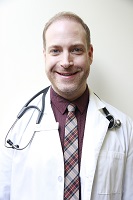On-Demand Courses
Cancer has recently surpassed heart disease as the number one killer in North America and naturopathic integrative oncology is a rapidly growing field. Unfortunately, due to time constraints, this important topic is only touched on briefly in the core naturopathic medical curriculum and as a result many naturopathic doctors feel inadequately prepared to support patients with cancer in their clinical practice.
This online self-study course is designed to provide clinically relevant information to allow naturopathic doctors in practice to safely and more effectively support patients with cancer and provides learners with the flexibility and convenience of online study. Learning is achieved through 10 online learning modules consisting of readings, videos, PowerPoint presentations and quizzes. This is combined with recorded video discussions involving case analysis, and further clinical application of the concepts introduced in the independent learning modules.
This introductory level course for practicing licensed professionals examines the etiology, prevention, screening, diagnosis of cancer, and the integrative naturopathic approach to the management of patients with cancer in all stages of their care. Conventional treatments will be reviewed to understand the full range of treatment options for individuals living with cancer. Naturopathic treatment plans will be outlined using evidence-informed medicine. Participants will learn the necessary research skills to assess oncology cases and cancer therapeutics to create a comprehensive integrative management plan. This course not only provides an understanding of clinically relevant knowledge, but endorses demonstration of comprehension, problem-solving, and the application of new concepts.
- Evaluate the theories of carcinogenesis and describe the current understanding of how cancer is initiated and develops in the body.
- Explain the goals of naturopathic treatment and rationalize the integration of naturopathic interventions in the treatment of patients with cancer.
- Design a cancer prevention plan for patients based on the current published evidence.
- Recall the current cancer screening guidelines and apply them to individual patients.
- List the benefits, potential adverse effects and safety concerns based on the available evidence for the various naturopathic interventions commonly used in the integrative treatment of patients with cancer.
- Evaluate the safety and effectiveness of various alternative cancer diets and therapies.
- List the potential benefits and adverse effects of the main conventional cancer treatments.
- Assess drug-nutrient/herb interactions commonly seen in the field of integrative oncology.
- Develop a comprehensive evidence-based naturopathic treatment plan to support patients with cancer during the following clinical settings:
- Pre- and post-operative
- During active chemotherapy
- During active radiation therapy
- Aftercare/survivorship
- Recognize important red flags and the limitations of naturopathic medicine as it relates to cancer care and determine when and how to make appropriate referrals.
- Critically evaluate published research in the field of integrative oncology.
